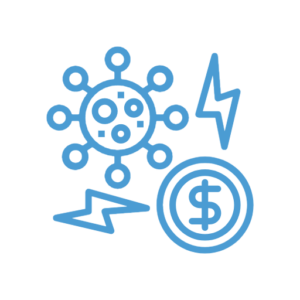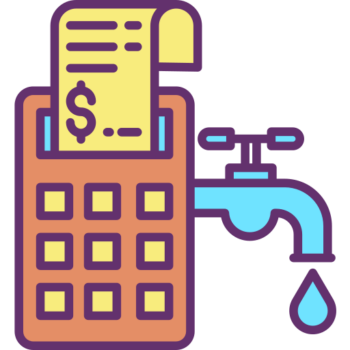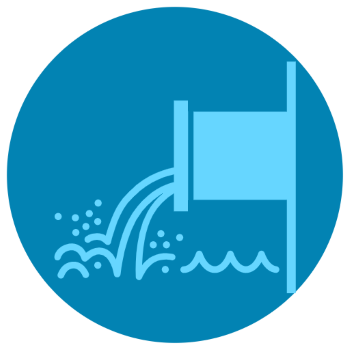At the time of this writing, Congress is debating passing another economic stimulus bill to provide relief against the COVID-19 pandemic. As the pandemic created hardships throughout the country for a year, the U.S. government passed two stimulus bills in 2020 that created or funded multiple financial relief programs for various needs. While there is no program that specifically provides relief to water and wastewater utilities’ losses in revenue, there are several programs funded through the two federal relief bills that can help customers pay past due or current water and/or wastewater bills (“water bills” for short). Water bill payment assistance relieves some of the financial burden on customers that are in most need, and also provides utilities needed revenues to cover unpaid bills and prevent shutoffs in many cases. While there is financial assistance to pay water bills, the fragmentation of the programs can be complicated to navigate. This blog post provides a summary and links to our new factsheets that describe several federally-funded coronavirus relief programs to date that may be used to pay water bills. Information about where customers can go for help is provided.
Tag: customer assistance programs (Page 1 of 2)
Guest Post by Stacey Berahzer of IB Environmental

Screenshot from Tool: Bill Payment Assistance Program Cost Estimation For Water Utilities
Water is such a universally essential service, that many utilities seek ways to help their low-income customers with affording the service. Generally referred to as a “customer assistance program” or CAP, this help can take different forms. Some utilities assist by repairing leaks and retrofitting low-income customers’ homes with water efficient devices. But, the more common approach is to provide some sort of financial assistance. For example, a special payment plan to help customers who have arrearages may be coupled with some debt forgiveness. Many utilities also offer discounts on the bills of customers who can prove their low-income status. But, is the cost of implementing such a program prohibitive? The good news is that there has never been a better time to find out.
Written by: Ryan Vulpis
In the state of North Carolina, many stormwater programs are required by the US EPA to maintain a Municipal Separate Storm Sewer System (MS4) Permit. This permit is designed to ensure that jurisdictions protect water quality within its jurisdiction by meeting six minimum control measures (MCM).
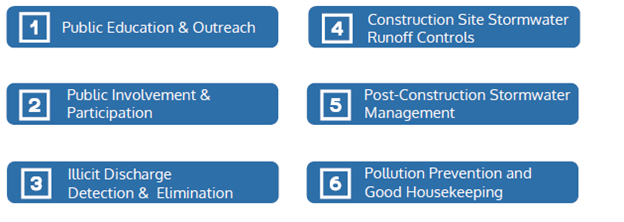
In 2019, the North Carolina Department of Environmental Quality (NC DEQ) began auditing MS4 permit holders according to a 5-year audit schedule, intending to audit 20 percent of the State’s permit holders on an annual basis. NC DEQ plans to audit permittees within the state on a five-year cycle to ensure continued compliance. The three possible outcomes of an audit are a notice of compliance (NOC), notice of deficiency (NOD), or notice of violation (NOV) depending on if an infraction is found and the nature of the infraction(s) found. NODs and NOVs serve to alert the permit holders of infractions and request that the infractions be rectified immediately [1]. The EFC analyzed 29 audits completed by NC DEQ for trends in items of deficiency and non-compliance across stormwater programs. While two of the audited communities received notices of compliance, two communities received notices of deficiency and 25 communities received notices of violation. Continue reading
Updates for Navigating Legal Pathways to Fund Rate-Funded Customer Assistance Programs
In 2017, the Environmental Finance Center at the University of North Carolina at Chapel Hill led a team of experts in summarizing legal barriers and opportunities to establish customer assistance programs using rate revenue, resulting in Navigating Legal Pathways to Fund Rate-Funded Customer Assistance Programs. Below is a brief summary of noteworthy changes that have taken place since that report was published in July 2017.
As water and wastewater prices continue to increase, due to a variety of factors, more utilities may find the need to establish assistance programs for some of their customers. In light of this and due to the passing and amending of new/old legislation, the EFC periodically updates all current state and territory summaries, and additionally, will be adding summaries for the other U.S. territories not previously included. Continue reading
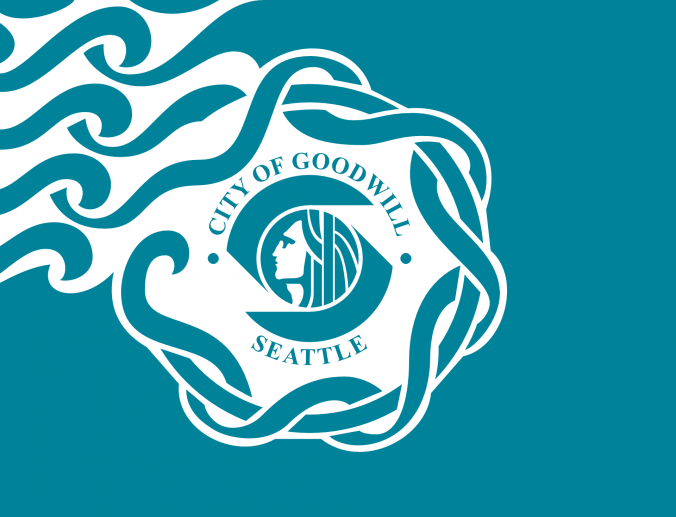
Four Factors that Allow One Utility to Provide Financial Assistance to People Who Don’t Even Have a Water Account
When setting rates, most water and wastewater utilities are concerned (at least to some extent) about whether their customers can afford the resulting bills. Many utilities are also wondering how they can assist the poorest segments of their customer base with the cost of water/wastewater service. However, a frustrating problem is that a lot of low income people live in multifamily housing, such as apartments, and do not actually have an account with the water utility. Even though they don’t receive a bill directly, these tenants are paying for the water/wastewater service indirectly via their rent. So some utility managers have been grappling with effective ways to provide assistance to these water users. Different theories involving vouchers etc. have been espoused, but one utility seems to have actually solved the problem.

